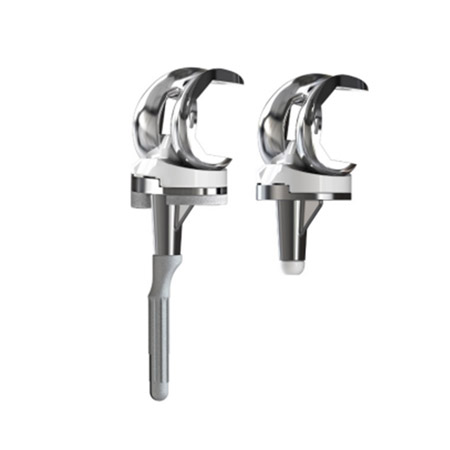Types Of Knee Replacement Prosthesis
 May. 13, 2021
May. 13, 2021
In the United States, the number of knee replacement surgeries continues to grow and is expected to reach nearly 3.5 million surgeries per year by 2030. This significant increase can be attributed in large part to the growing number of baby boomers (babies born between 1946 and 1964). Reaching retirement age - when the chance of joint wear is higher - increases obesity and the need for follow-up surgery increases.
Doctors recommend knee replacement surgery when patients endure constant pain or when daily life is affected by limited mobility. According to the American Academy of Orthopaedic Surgeons, more than 90 percent of knee replacement patients experience a significant reduction in knee pain. Recipients can have either a partial knee replacement or a total knee replacement. The difference depends on the recipient's condition and pain level.
These are the features that should be present in an ideal knee implant.
Allow for normal activity and motion
Last the expected 15-20 years or more.
Have a good track record of use in joint replacement recipients (minimum should be 5-10 years)
Meet your conditions, needs, and any other requirements (e.g., biocompatibility for those with nickel allergy) Your surgeon will ask for information regarding lifestyle, allergies, etc.
Be familiar with the brand and style of the selected surgeon.

High Flexion Total Knee System
What kind of metal is used in knee replacements?
Artificial knee materials can be made of strong plastic, metal, or ceramic. All knee replacements, partial or total, will have parts made of a few different materials (likely metals and plastic). In most cases, each component is built from titanium, cobalt-chromium alloys, or a titanium and cobalt mixed metal. The chosen materials must be durable, allow for some flexibility with movement and be biocompatible (meaning it will not be rejected, corrode nor react with the body).
Cobalt-Chromium Alloys
Chromium alloys are one of the most commonly used materials in implant components. This metal is biocompatible, tough, durable, and will not be broken down inside the body. This material is commonly used for the femoral implant since it is very sturdy and the femoral implant has a lot of traction against the plastic spacer during movement. For those with nickel allergies, some particles from this metal can get into the bloodstream and cause a reaction. Please let your surgeon know if you have an allergy as there are alternatives.
titanium joint replacement
Titanium and Titanium Cobalt
Pure titanium is not used nearly as commonly as titanium cobalt. Titanium joint replacement is used as frequently as cobalt-chromium alloys. Titanium alloys are biocompatible, will not corrode, nor change inside the body. Titanium cobalt is more elastic and favorable to the natural bone surrounding the implant. Since this metal is softer, it tends to make up the tibial part of the replacement where the plastic inserts lock-in. In the tibial component, the metal choice is less important since there is little traction or rubbing during movement.
Polyethylene
This is a type of strong plastic found in the tibial patellar (kneecap) component and the plastic spacer. The plastic components allow the metal pieces to glide smoothly throughout the movement. This material is metal-free.
For those who have a nickel allergy
If you have a history of skin reactions to metal jewelry or are unsure if you are allergic, it is worthwhile to be formally tested by an allergist. Often, femoral components are the only artificial components that those with nickel allergies need to be aware of when choosing materials and manufacturers. Most femurs are made of cobalt-chromium alloy because it is a very tough metal. The tibial component (another component made of metal) is usually made of a softer titanium alloy, which has a very low (almost untraceable) nickel content.
Find the best knee replacement implants: artificial knees brands
As a knee implant manufacturer, Just HuaJian Medical Device (Tianjin) Co., Ltd., founded in 1958, integrates R&D, manufacturing, marketing, training, and service. JUST MEDICAL has developed a full range of joint replacement product families such as 4 hip systems (primary, complex primary, revision, and custom-made) with more than 40 series and 1,000 specifications, and 4 knee systems (preservation, primary, complex primary, and revision) with 7 series and over 600 specifications. It is certified with GMP, ISO, CE, CFDA, FSC and obtained local certifications in other countries and regions. If you want to know about the high flexion total knee system price, feel free to contact us.













